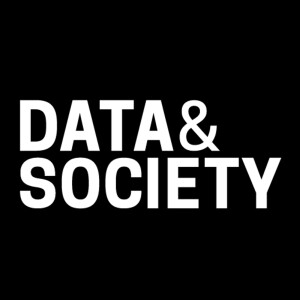
How can feminist thinking be operationalized into more ethical and equitable data practices? As data are increasingly mobilized in the service of governments and corporations, their unequal conditions of production, asymmetrical methods of application, and unequal effects on both individuals and groups have become increasingly difficult for data scientists—and others who rely on data in their work—to ignore. But it is precisely this power that makes it worth asking: “Data science by whom? Data science for whom? Data science, with whose interests in mind?” These are some questions that emerge from what we call data feminism; a way of thinking about data science and its communication that is informed by the past several decades of intersectional feminist activism and critical thought. This talk draws on insights from the authors' collaboratively crafted book about how challenges to the male/female binary can challenge other hierarchical (and empirically wrong) classification systems; how an understanding of emotion can expand our ideas about effective data visualization; and how the concept of “invisible labor” can expose the significant human efforts required by our automated systems.
About the Speakers
Catherine D’Ignazio (she/her) is a hacker mama, scholar, and artist/designer who focuses on feminist technology, data literacy and civic engagement. She has run women’s health hackathons, designed global news recommendation systems, created talking and tweeting water quality sculptures, and led walking data visualizations to envision the future of sea level rise. Her book from MIT Press, Data Feminism, co-authored with Lauren Klein, charts a course for more ethical and empowering data science practices. D’Ignazio is an assistant professor of Urban Science and Planning in the Department of Urban Studies and Planning at MIT where she is the Director of the Data + Feminism Lab. More information about Catherine can be found on her website at www.kanarinka.com.
Lauren F. Klein (she/her) is a scholar and teacher whose work crosses the fields of data science, digital humanities, and early American literature. She has designed platforms for exploring the contents of historical newspapers, recreated forgotten visualization schemes with fabric and addressable LEDs, and, with her students, cooked meals from early American recipes—and then visualized the results. In 2017, she was named one of the “rising stars in digital humanities” by Inside Higher Ed. She is the author of An Archive of Taste: Race and Eating in the Early United States (University of Minnesota Press, 2020) and, with Catherine D’Ignazio, Data Feminism (MIT Press, 2020). With Matthew K. Gold, she edits Debates in the Digital Humanities, a hybrid print-digital publication stream that explores debates in the field as they emerge. Klein is an Associate Professor of English and Quantitative Theory & Methods at Emory University, where she also directs the Digital Humanities Lab. More information can be found on her website: lklein.com.
About Databites
Data & Society’s “Databites” speaker series presents timely conversations about the purpose and power of technology, bridging our interdisciplinary research with broader public conversations about the societal implications of data and automation.
More Episodes
 2022-08-16
2022-08-16
 2022-06-15
2022-06-15
 2022-06-07
2022-06-07
 2022-03-22
2022-03-22
 2022-02-14
2022-02-14
 2022-01-26
2022-01-26
 2021-08-17
2021-08-17
 2021-05-24
2021-05-24
Create your
podcast in
minutes
- Full-featured podcast site
- Unlimited storage and bandwidth
- Comprehensive podcast stats
- Distribute to Apple Podcasts, Spotify, and more
- Make money with your podcast
It is Free
- Privacy Policy
- Cookie Policy
- Terms of Use
- Consent Preferences
- Copyright © 2015-2024 Podbean.com





